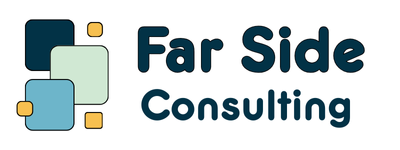When you're choosing keywords for your ABA therapy site, it's essential to focus on terms that potential clients are actually searching for. Start by leveraging tools like Google Keyword Planner to uncover relevant phrases that not only drive traffic but also reflect the services you offer. Analyzing what your competitors are doing can provide valuable insights and reveal gaps you can exploit. You might be surprised at how one strategic keyword can change your visibility online. What's the next step in making your site stand out in a crowded field?
Key Takeaways
- Identify core concepts related to ABA therapy, such as "behavior intervention" and "autism support," to build a foundational keyword list.
- Utilize keyword research tools like Google Keyword Planner and SEMrush to discover high-traffic and low-competition keywords relevant to your services.
- Analyze competitor websites to understand their targeted keywords, content strategies, and market positioning for inspiration.
- Focus on long-tail keywords that indicate specific user intent, as they often lead to higher conversion rates and less competition.
- Integrate selected keywords naturally into your website's titles, headings, and content to enhance SEO without compromising readability.
Understanding ABA Therapy Keywords
When diving into the world of ABA therapy, understanding the right keywords can be a game changer for your website. Keywords are the terms potential clients use when searching for information or services related to Applied Behavior Analysis. By selecting the right ones, you'll not only attract visitors but also guarantee they find the content relevant to their needs.
Start by identifying core concepts related to ABA therapy, such as "behavior intervention," "autism support," and "therapy techniques." These are foundational phrases that resonate with your target audience.
Think about their specific concerns and how they might phrase their searches. For instance, parents might search for terms like "ABA therapy for children" or "effective behavior strategies."
You should also consider long-tail keywords, which are more specific phrases that often indicate a ready-to-act visitor. Phrases like "how to choose an ABA therapist" can help you connect with users who're further along in their decision-making process.
Tools for Keyword Research
Keyword research tools are essential for uncovering the phrases your potential clients are using to seek ABA therapy services. By utilizing these tools, you can gain insights into search volume, competition, and trends, which will help you refine your keyword strategy.
Here are four effective tools to evaluate:
- Google Keyword Planner: A free tool that provides keyword suggestions and search volume data. It's perfect for starting your research.
- SEMrush: This extensive platform offers keyword tracking, competitor analysis, and detailed insights into search trends. It's great for understanding the broader landscape.
- Ahrefs: Known for its powerful backlink analysis, Ahrefs also has a robust keyword explorer that can help you identify keywords with the right balance of traffic and difficulty.
- Ubersuggest: This user-friendly tool offers keyword ideas along with SEO difficulty and potential traffic estimates. It's a solid choice for beginners.
Analyzing Competitor Keywords
Analyzing competitor keywords can reveal valuable insights into your market and help you refine your own strategy. By examining what keywords your competitors are targeting, you can identify trends and gaps that you may want to exploit.
Start by listing your main competitors in the ABA therapy space, and use keyword research tools to uncover the specific terms they're ranking for.
Look for high-traffic keywords that align with your services but also pay attention to the keywords that are driving less competition. This way, you can find opportunities to rank more easily.
Don't just focus on the popular keywords; also analyze their content. What topics are they covering? How are they structuring their pages? This information can guide the development of your own content strategy.
Additionally, take note of their meta descriptions and title tags. These elements can provide clues about their targeted terms and how they're positioning themselves in the market.
Use this analysis to inform your own keyword list, ensuring you're not only competing but also carving out your unique niche in the ABA therapy landscape.
Long-Tail Keywords Importance
Long-tail keywords play an essential role in your ABA therapy site's SEO strategy. Unlike broad keywords, these phrases are more specific and usually contain three or more words. They may seem less popular, but they can greatly boost your site's visibility and attract more targeted traffic.
Here's why you should prioritize long-tail keywords:
- Higher Conversion Rates: Visitors searching for specific services are more likely to convert into clients. Long-tail keywords reflect their intent, making them more valuable.
- Less Competition: While broader keywords are highly competitive, long-tail phrases often have less competition, giving you a better chance to rank higher in search results.
- Enhanced Relevance: Long-tail keywords help you connect with your audience's specific needs. This relevance can lead to better engagement and trust in your services.
- Improved Content Opportunities: They provide clear guidance on the topics your audience is interested in, allowing you to create targeted content that resonates with potential clients.
Implementing Keywords Effectively
Effective implementation of keywords can greatly enhance your ABA therapy site's online presence. Start by integrating your chosen keywords naturally throughout your website's content. Focus on placing them in essential areas like titles, headings, and the first 100 words of your text. This helps search engines understand the main topics of your pages.
Next, don't forget about meta descriptions and alt texts for images. Including keywords here can improve your visibility in search results, making it easier for potential clients to find you. Aim for a balance; keyword stuffing can hurt your rankings and make your content less engaging.
Additionally, consider creating blog posts or articles centered around your keywords. This not only provides valuable information to your audience but also gives you an opportunity to incorporate keywords in a meaningful way.
Conclusion
Choosing the right keywords for your ABA therapy site is like crafting a key that opens the door to potential clients. By understanding the nuances of ABA therapy, utilizing powerful research tools, and analyzing your competitors, you can create a keyword strategy that stands out. Don't forget the value of long-tail keywords—they're the subtle brushstrokes that complete your masterpiece. Implementing these keywords effectively will not only enhance your site's visibility but also connect you with those who truly need your services.

